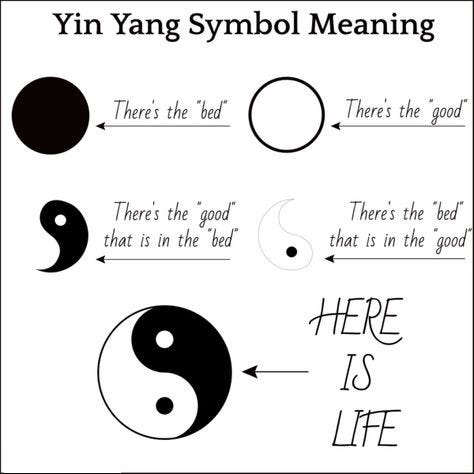In Ancient Chinese philosophy, yin and yang (“dark-light”, “negative-positive”) is a concept of dualism, describing how obviously opposite or contrary forces may actually be complementary, interconnected, and interdependent in the natural world.

[https://en.wikipedia.org/wiki/Yin_and_yang]
Shrimad Bhagavad Gita (Sanskrit: श्रीमद्भगवद्गीता, ‘The Song by God’), is a Hindu scripture, dated to the first millennium BCE and exemplary for emerging Hindu synthesis.
Bhagavad Gita expresses yin and yang this way:
[https://en.wikipedia.org/wiki/Bhagavad_Gita]
Bhagavad Gita 18.48: … all endeavors are veiled by some evil, as fire is by smoke.
Further, Bhagavad Gita talks about how to effectively handle the dualities such as good-bad.
Content with what comes to one without effort, free from the pairs, even-minded in success and failure, though acting, he is not bound. Bhagavad Gita 5.22
…and the nature of one who has overcome dualities
… They, whose perception of dualities or experience of the pairs of opposites are torn asunder, are self-controlled, intent on the welfare of all beings… are sages Bhagavad Gita 5.25
